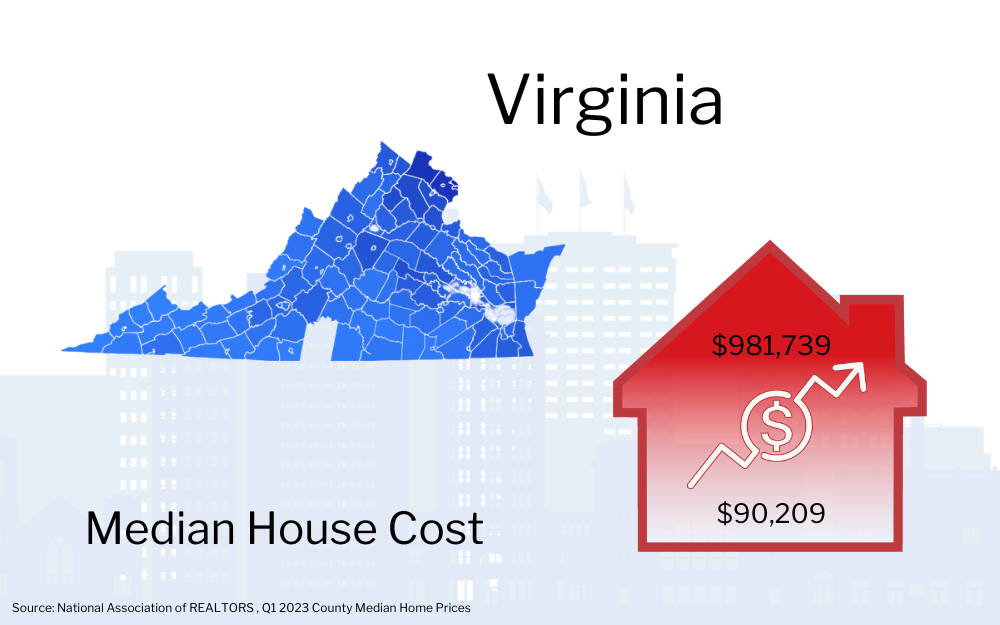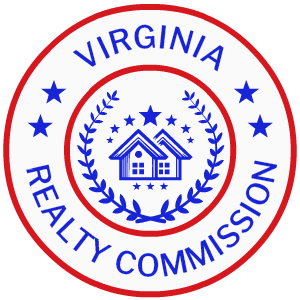
The real estate exam in Virginia is handled and administered through a private company, PSI Services LLC.1
Therefore, you can register and schedule to do the exam any time after completing the real estate education courses from an approved provider.
The exams are scheduled on a first-come, first-served basis, and you can easily miss out if you delay your application. To ensure you get your license as soon as possible, send in your exam registration after your education provider submits your report to PSI.
Real Estate Exam Insight
To register, visit PSI’s exam website or call 800-733-9297. After registering, you can choose an examination site location near you.
Some examination sites are in Richmond, Vienna, Roanoke, Virginia Beach, Eastern Shore Area (Salisbury, MD), Johnson City, and Charlottesville.
On the day of the exam, ensure that you arrive at your designated exam location 30 minutes earlier to allow time for signing in to the system, fingerprint identification, and familiarizing with the entire examination process.
As part of your identification, you must present a valid government-issued identification that bears your name, photograph, and your signature. Sometimes, the examination site may require you to submit two identification documents with matching names and signatures for better identification.
The real estate exam is divided into two portions:
- The national portion consists of 80 questions and should be completed within 105 minutes
- The state portion consists of 40 questions, and you should complete it within 40 minutes
To pass the exam, you must get at least 56 questions correct in the national portion and 30 questions correct in the state portion. Once you have finished the exam, your results appear immediately on the screen, showing whether you have passed or failed.
If you fail, you get an unsuccessful notification showing the details of how you performed in each section and where you need to do better. You can retake the exam at any time.
Here are some sample questions for the real estate exam:2
1. Which of the following clauses in a mortgage allows the lender to demand loan repayment if a borrower sells the property?
a) Defeasance
b) Prepayment
c) Acceleration
d) Alienation
2. Which of the following interests in property is held by a person who is granted a lifetime use of a property that will be transferred to a third party upon the death of the lifetime user?
a) A life estate
b) A remainder estate
c) An estate for years
d) A reversionary estate
3. How much cash MUST a buyer furnish in addition to a $2,500 deposit if the lending institution grants a 90% loan on an $80,000 property?
a) $5,500
b) $6,975
c) $7,450
d) None of the above
Most of the real estate education providers in Virginia include an exam preparation course that allows you to familiarize yourself with the possible exam questions and how you can handle them. While such a course may increase the cost of the entire course, familiarizing yourself with it will make it easier for you to handle questions in the exam room.
The exam is likely to cover topics such as:
- Property & land characteristics
- Air, water, and mineral rights in real estate
- Liens and Encumbrances in Real Estate
- Types of property ownership
- Regulations of environmental hazards in real estate
- Property valuation and appraisal
- Basic real estate financing terms and concepts
- Types of real estate loans
- Lending and underwriting processes
- Agency relationships and agreements
- Disclosures of property conditions
- Real estate sales contracts
- Leasing and property management
- Real estate title transfers
- Common real estate calculations
- Engaging in real estate in Virginia
- Virginia agency law
- Real estate practices
- Virginia real estate laws
- Virginia real estate salesperson licensing exam flashcards
Ensure that your exam preparation touches on all these topics so that you are fully prepared to pass. As part of your preparation, you can choose to take free online real estate courses with certificates and learn more.
Most of these free online courses are comprehensive and offer information on the current trends in the real estate industry. Since you are getting into a developing market, such courses will keep you abreast with the latest information in the current market.
Navigating the Virginia Department of Professional and Occupational Regulation Real Estate License Application in Five Steps
The process of getting a real estate license in Virginia is seamless, as most of the steps are digitized and can be completed online. If you are wondering how to start the process of applying for a real estate license, these five steps can guide you through it:
Step 1: Check the State’s Legal Requirements and Meet All of Them
According to the Department of Professional and Occupational Regulation, you must be 18 years old and have completed high school education. Other qualifying credentials, like a GED or homeschooling, as approved by the Department of Education, are also acceptable.
Step 2: Enroll for a Real Estate Course
The Real Estate Board in Virginia has a state-approved course that all aspiring real estate agents must complete before qualifying for a license. The course is available online and in-person, depending on where you are in the state.
You can search the Real Estate Board’s website to find schools near you approved to offer the real estate education course. The course takes 60 hours to complete, and the education provider will submit your report to PSI for your examination.
Step 3: Take the Real Estate Exam and Pass
Once you’ve completed the real estate course, you can register for the exam on the PSI Exam website and do it. You’ll need to get at least 75% of the exam correct for you to pass and qualify for the license.
The best thing about this exam in Virginia is that you don’t have to wait for your exam results, as they show up immediately after completing the exam. If you fail, you have an option to retake the exam and do better.
Step 4: Find a Sponsoring Broker
Unlike other states where you can get a license without a broker and remain inactive until you find one, the State of Virginia requires that you find a broker before you submit your application.
A real estate broker will employ you as an agent in their firm and mentor you into becoming a successful agent.
Step 5: Submit Your License Application
Once you’ve met all the requirements, you can submit your application to the Real Estate Board in Virginia for consideration. You must submit evidence that you have passed the licensing exam, met the age and educational requirements, and found a sponsoring broker to work with.
Your application should also include a background check report based on your fingerprints. A background report is conducted before you do the exam.
Financial Obligations for Membership in the Virginia Department of Professional and Occupational Regulation
The Code of Virginia dictates that all the fees be set by the board responsible.3
For example, all the fees applicable in real estate are set and regulated by the Real Estate Board.
Some of the fees you pay when applying for a real estate license include:
- License application fees: $170
- Pre-licensing examination fee: $60
- Fingerprint-based background check fee: $52
- PSI processing fee: $25
Unless otherwise indicated, all payments for license application, renewal, examination, and all other fees should be made payable in U.S. currency to the Treasurer of Virginia and mailed to:3
Department of Professional and Occupational Regulation
9960 Mayland Drive, Suite 400
Richmond VA 23233-1463
It’s important to note that all payments made by the state are non-refundable.
Applying for National Association of Realtors® (NAR) Membership (If Desired)
Joining an association of REALTORS® is optional, but it’s something you can go for and become part of the real estate experts in the state. You can choose to join the association meant for Virginia Realtors® or go for the National Association of REALTORS® (NAR).
The advantage of joining the Virginia Association of REALTORS® (VAR) or the National Association of REALTORS® (NAR) is that you have access to major networking opportunities, legal services, and educational resources to keep you informed on the real estate trends in the state.
What’s the General Duration of the Real Estate Application Procedure?
So, how long does it take to become a real estate agent in Virginia? Considering that most of the processes in the application for a real estate license are online, you can complete the process fast and get your license in a few weeks.
For example, you can complete the real estate course online and do the exam as soon as you complete it. The results have no wait time, and you can get them immediately.
The only step that may take time is finding a sponsoring broker as you have to contact quite a number of them before you get one to take you in. Otherwise, if you have established good connections and know your way around the real estate industry, you can find one pretty fast and move forward.
Once you get a sponsoring broker and submit your application, you can get your license within no time. With that in mind, the average time you can take to get your real estate license is 4-6 weeks.
References
1Virginia Department of Professional and Occupational Regulation. (2023). Real Estate Board: Pre-License Education. DPOR. Retrieved November 14, 2023, from <https://www.dpor.virginia.gov/Boards/Real-Estate/Pre-License>
2VanEd. (2023, January 6). How Much Does It Cost to Get a Real Estate License in Virginia? VanEd. Retrieved November 14, 2023, from <https://www.vaned.com/blog/virginia-real-estate-license/>
3Virginia Department of Professional and Occupational Regulation. (2023). Fees and Payments. DPOR. Retrieved November 14, 2023, from <https://www.dpor.virginia.gov/About/Fees-Payments>
